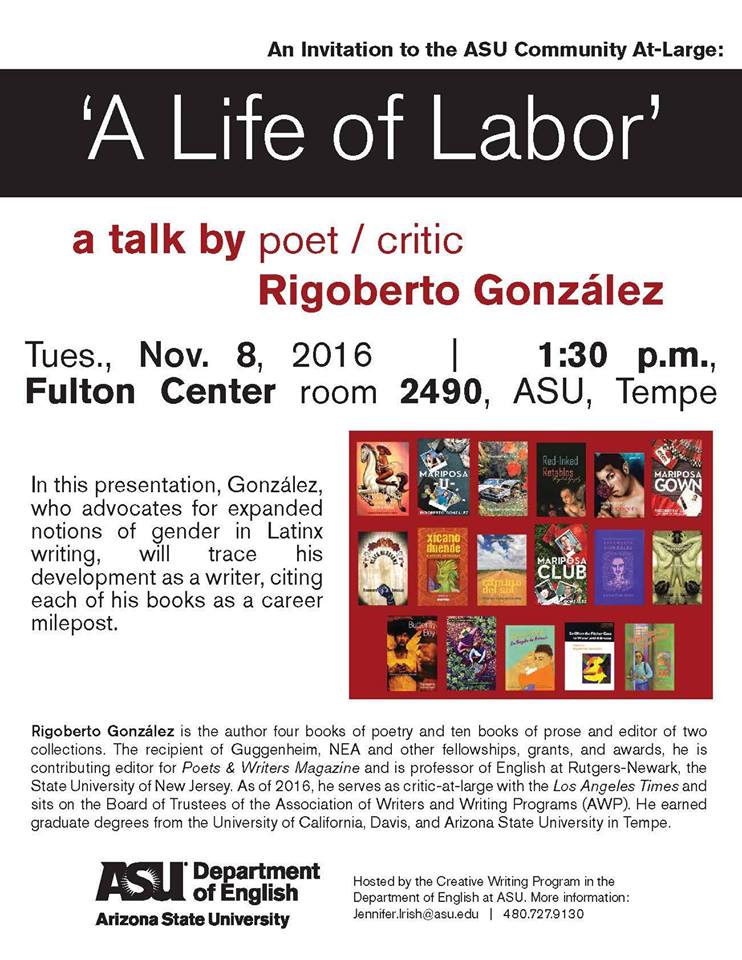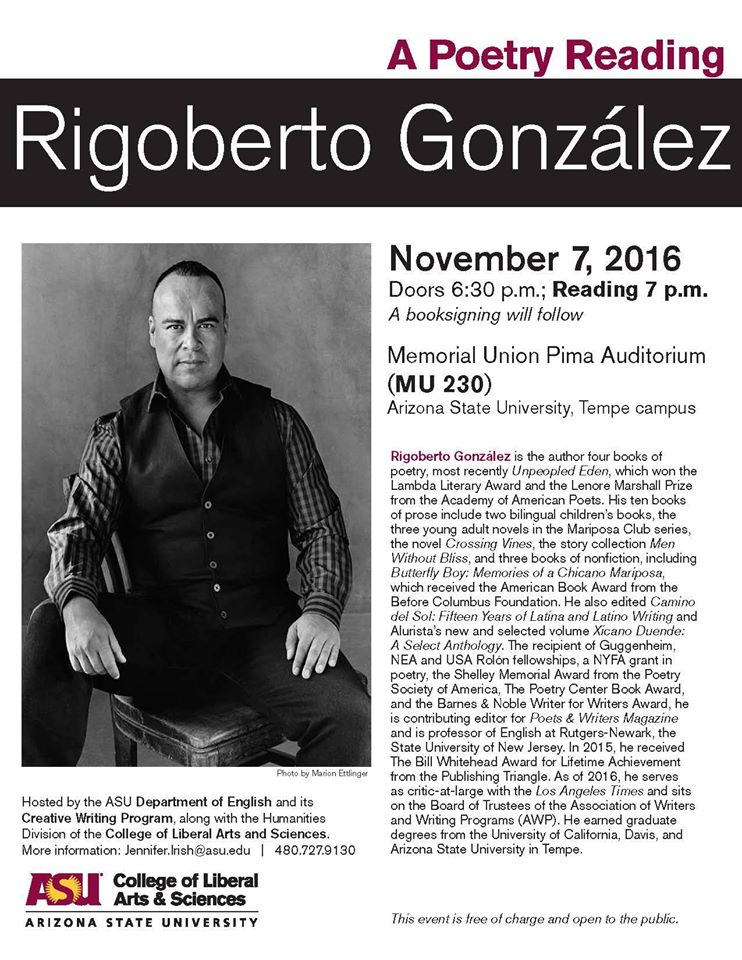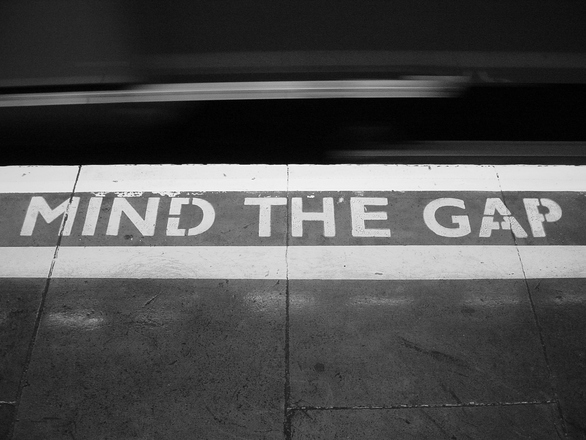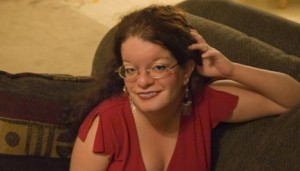We hope that you’ll enjoy Amanda’s self-interview so much you’ll submit your own.
Email your answers to superstition.review@gmail.com
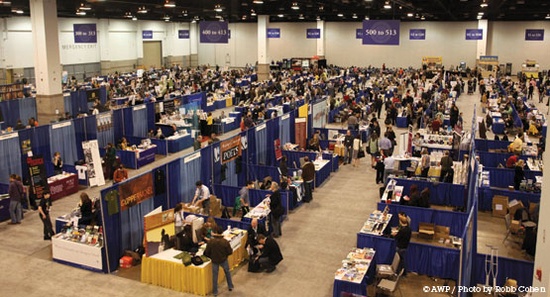 1. What did you hope to get out of AWP? Did you get it?
1. What did you hope to get out of AWP? Did you get it?
I wanted to be energized by being surrounded by other poets and writers, all of those books at the book fair, the hullabaloo of AWP for three days. I wanted to come back with the desire to return to writing poetry after a near-year hiatus and thankfully, I did get what I so eagerly wanted. Even before I left for the airport, ideas for poems and poem titles danced in my head. I couldn’t wait to get home and begin anew.
2. Was this your first AWP? If not, how does this year’s AWP rate among the ones you’ve attended?
This was my sixth AWP and I think that this year’s was my favorite by far, even though I actually saw little of it (panels and book fair) compared to other years (such as in New York, where I literally ran from one panel to the next) because of AWP-related obligations. I felt that the energy at this year’s AWP was different in a positive way and everyone I met, even if they were exhausted, seemed to be having a great time.
3. Favorite AWP 2013 moment?
I have two favorite AWP 2013 moments actually. The first was being able to read with so many amazing poets and writers at the Zone 3 Press/University of Wisconsin Press reading on Friday night. It was truly a humbling experience to be able to read with the likes of Richard Blanco, Timothy Liu, James Allen Hall, Paul Lisicky, Charles Rice-González, Andrew Kozma, Kate Gleason, John Pursley III, and Karen Skolfied.
My second favorite moment was actually more personal and really not AWP-related at all. I was blessed to meet my biological cousin (I’m adopted), Hope, for the first time at the aforementioned reading on Friday night. We planned this for a while and have chatted a bit over the past couple of years, but meeting her was beyond exciting. I couldn’t have asked for a better experience to coincide with AWP. Who says poetry can’t bring people together?
4. Favorite panels?
I am embarrassed to say that I didn’t go to any other panels (other than the one I was on with Bellevue Literary Review) because I had quite a lot of obligations (AWP-related and otherwise). I really wished I had. There were so many that looked amazing that I wanted to attend, but couldn’t, such as the one on Post-Genre Lit, Essaying the Essay, A Reading by Four Crab Orchard Series in Poetry Authors, Options of the I: The Post-Memoir Memoir, 40 Years of Poetry from Alice James Books, A Tribute to Adrienne Rich, the VIDA panel, and the Copper Canyon Press 40th Anniversary Reading. Next year I am going to come in on Wednesday instead of Thursday late afternoon and try to get my schedule better organized because I’m kicking myself that I couldn’t get it together this year!
5. Most embarrassing AWP 2013 moment?
I have one big embarrassing AWP 2013 moment, which took place on Friday afternoon in the book fair. I ran into Rigoberto González, who I dearly love and who chose (and wrote the introduction for) my first book, The Glass Crib. We were chatting and he mentioned that Eduardo Corral was around (who we both know) and minutes after that, I called Rigoberto Eduardo no less than three times in the space of a five minute conversation. I am still mortified. He must think I’m completely daffy.
6. Fangirl/fanboy moment?
I’m not going to lie: I had the biggest fangirl moment when I discovered that I was reading with Richard Blanco. I about died. I’m really glad that I didn’t know that I was going to be reading with him because I probably would have passed out, wet my pants, or acted like a giddy 10-year-old. Luckily, I held it together long enough to do the reading.
The next day, my husband, Jeff, came over to me at the Perugia Press table (where I was signing copies of my book) and told me that Blanco was also signing books down the aisle. I told my editor, Susan Kan, that I would be right back and weaved in and out of the throng of people on the L aisle to get to where Blanco was calmly seated, pen in hand. I quickly snapped up a copy of his book and the chapbook of his inaugural poem and had him sign both. It was such a high to not only have read with him the night before, but to actually have a few minutes of face time with such a meaningful poet. I felt like the dorky creative writing undergrad that I once was chasing down poets in AWP to get them to sign copies of their books. It was awesome.
7. Did you participate in any AWP-related activities?
I participated in three AWP-related activities: the 10th Anniversary of the Bellevue Literary Review panel reading that took place on Friday morning, the Zone 3 Press/University of Wisconsin Press reading on Friday night, and I had a book signing for my recently-released second book, The Wishing Tomb, at the Perugia Press table on Saturday afternoon. I was a busy girl. I was also originally slated to do the Perugia Press 16th anniversary panel reading, but wasn’t able to in the end because of my flight schedule.
8. How was the infamous book fair at this year’s AWP?
I unfortunately didn’t spend much time at this year’s book fair (maybe a total of two hours) because I had so many obligations. I also didn’t find out there was a second floor to the book fair until Saturday (thankfully, for my wallet)! There are some years where I practically live in the book fair and come home with loads of books, journals, buttons, pens, matchbooks covers, and the like, but this didn’t turn out to be one of those years. What I did see of the book fair, however, looked amazing and I’m so upset that I didn’t at least get to have a peek at the second story! Who was up there?
9. What was included in your AWP book fair haul?
Even though I wasn’t able to spend much time at the book fair, I did manage to score some great things! I got: free copies of Poets & Writers, Looking for the Gulf Motel by Richard Blanco, One Today by Richard Blanco (the limited-edition chapbook of Blanco’s Inaugural poem), free copies of The Southeast Review, Predatory by Glenn Shaheen, Charms for Finding by Rebecca Kinzie Bastian, Bright Power, Dark Peace by Traci Brimhall and Brynn Saito, a copy of The American Poetry Review, a cool little notebook/pen set and nylon drawstring book bag from Zone 3 Press, a diode button, two bookmarks from Boxcar Poetry Review, and two of the coolest-designed books I’ve ever seen from idiot books (a new-to-me press): After Everafter and Ten Thousand Stories. I do wish I’d gotten more swag, but I’m pretty sure my suitcase (and my shoulders) doesn’t!
10. What is one bit of advice you could give to someone who’s never been to AWP and is thinking about going next year?
1. Wear comfortable shoes. Those girls who wear stilettos at AWP? They’re kidding themselves. 2. Take your gummy vitamins and Emergen-C as AWP is a cesspool of flus and colds. 3. You will not make every panel. 4. Budget your money wisely because it runs out faster than you’d think. 5. You will run into your frenemies. 6. The hotel bar is overrated and expensive. Go for the free wine and beer at the dance party instead. 7. You will fall down at least once. 8.That famous poet really doesn’t want to read your manuscript or blurb your book. 9. You will not have time to have meaningful conversations, unless you count a meaningful conversation as three minutes of hellos and one awkward photo taken on a camera phone. 10. It’s the best time ever.
